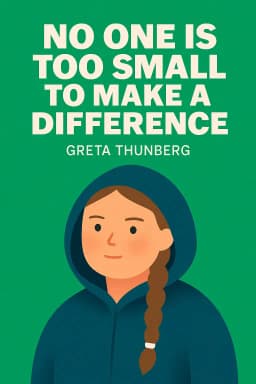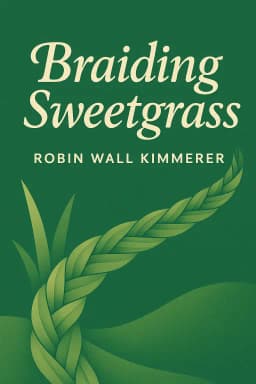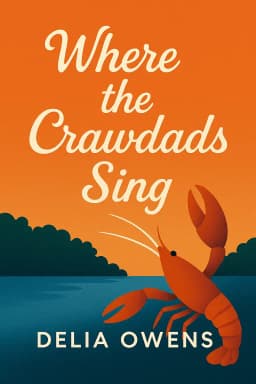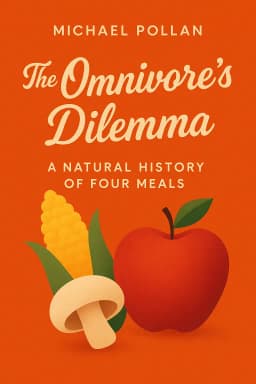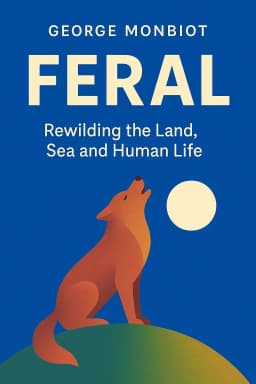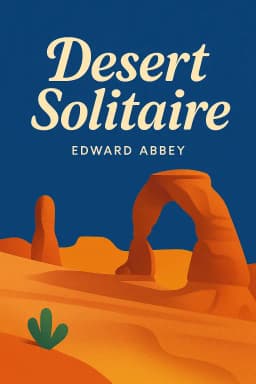
The Abbey Paradox
Golden Hook & Introduction
SECTION
Mark: Alright Michelle, I'm going to say a book title, and you give me your gut-reaction, one-liner review. Ready? Desert Solitaire. Michelle: Okay... 'Grumpy man yells at cloud, but the cloud is civilization and honestly, he has a point.' How's that? Mark: That is... shockingly accurate. Welcome to the world of Edward Abbey. Michelle: I feel like that’s the reputation that precedes this book. It’s this monumental work of environmental writing, but the man behind it is, let’s say, prickly. Mark: Prickly as a cholla cactus. So yes, today we are diving into Edward Abbey's 1968 classic, Desert Solitaire: A Season in the Wilderness. Michelle: A book that's become a kind of bible for a certain type of environmentalist, right? But also one that makes a lot of people… uncomfortable. It’s highly acclaimed but also deeply polarizing. Mark: Exactly. And what’s fascinating is that Abbey wasn't a professional philosopher or academic writing from an ivory tower. He wrote this based on his actual experiences working as a seasonal park ranger in what was then Arches National Monument in Utah, living in a tiny government trailer, completely isolated. Michelle: So this isn't just theory. This is a dispatch from the front lines of solitude. Mark: A dispatch from the bedrock, as he would say. He drives 450 miles, gets a key, and is told his new home is a trailer twenty miles down a dirt road, past signs that just say "QUICKSAND." That’s where our story begins.
The Gospel of the Desert: Abbey's Love Letter to Wilderness
SECTION
Mark: So let's go there, to that trailer. He arrives in the dark, wakes up in the freezing cold, and steps outside. And what he finds isn't just a pretty landscape. It's a challenge. He describes this profound desire to see the world without human baggage. He says, "I want to be able to look at and into a juniper tree... and see it as it is in itself, devoid of all humanly ascribed qualities." Michelle: Wow, that’s a heavy goal for a Tuesday morning. He’s not just trying to appreciate nature; he’s trying to un-learn being human, in a way. To strip away all the labels and categories we impose on things. Mark: Precisely. He’s seeking a direct, unmediated experience. And he gives it a name. He says, "I dream of a hard and brutal mysticism in which the naked self merges with a nonhuman world and yet somehow survives still intact." Michelle: A 'hard and brutal mysticism'? That doesn't sound like meditating by a gentle stream. It sounds painful, almost aggressive. What does that even look like in practice? Mark: Well, it looks like his relationship with the other inhabitants of his little kingdom. At first, he’s surrounded by mice, which attract rattlesnakes. His initial impulse is very human: get rid of the pests, kill the danger. He has this tense standoff with a rattlesnake right on his doorstep. Michelle: I think my 'hard and brutal mysticism' would involve a very quick retreat back inside the trailer and locking the door for a week. Mark: He considers it. But then he has a different idea. He's dealing with this mouse problem, so he goes to the park dump, finds a gopher snake—a natural predator of mice and rattlesnakes—and essentially hires it. He brings this snake into his trailer to be his roommate and pest control. Michelle: He brings a snake… into his house… on purpose? Okay, this is a level of 'coexisting with nature' that I have not yet unlocked. Mark: And it works! The mice disappear, the rattlesnakes stay away, and he develops this strange bond with the gopher snake. He reflects on this and comes to a profound conclusion. He writes, "We are obliged, therefore, to spread the news... that all living things on earth are kindred." He sees this deep, symbiotic connection between all life. Michelle: That's a beautiful idea—this kinship with everything, from snakes to spiders. It’s very powerful. But… this is the same guy who does some pretty questionable things to animals, isn't it? I'm thinking of the rabbit story. It’s one of the most infamous parts of the book. Mark: It is. And we have to go there. While on patrol, he sees a cottontail rabbit hiding under a bush. And on a self-described scientific impulse, he picks up a stone and throws it, killing the rabbit instantly. Michelle: Just… to see what would happen? Mark: To see what it would feel like. He describes it as an experiment. And his reaction is a mix of shock and a strange, wild elation. He says that after killing the rabbit, he no longer felt like a stranger in the desert. He felt like a participant, a predator, part of the food chain. Michelle: That is deeply unsettling. How can the man who writes about the kinship of all living things then kill one of them out of sheer curiosity? It feels like a massive contradiction. Mark: It is. And Abbey lives in that contradiction. He contains both this deep, almost Buddhist reverence for life and this shocking, cold, scientific cruelty. And that paradox, that internal conflict, is the engine for everything else in the book. It’s the key to his anger.
The Anarchist's Fury: The War on 'Progress'
SECTION
Mark: That reverence he felt for the wild, untamed desert is exactly why he got so furious. He saw this pristine, 'useless' beauty being paved over for what he called 'Industrial Tourism.' Michelle: What did he mean by 'Industrial Tourism'? It sounds like a factory for vacationers. Mark: That's a perfect way to put it. He meant tourism that’s built around the automobile. It’s about making nature accessible without requiring any effort. He describes tourists driving through the park, sealed in their cars, experiencing the Grand Canyon through a windshield, never getting out, just rushing to the next photo-op. He saw it as a kind of spiritual sickness. Michelle: This feels incredibly modern. He was basically predicting the 'doing it for the 'gram' vacation, where you just drive up, take the photo, and leave. His critique from 1968 is more relevant than ever, with national parks being overrun. Mark: Absolutely. The story that crystallizes this for him is when a survey crew in a jeep shows up at his isolated trailer. They're from the Bureau of Public Roads, and they're there to plan a new paved highway right through the heart of his sanctuary. The engineer tells him, 'This will bring more tourists.' For Abbey, it was a declaration of war. Michelle: So what was his solution? Just keep everyone out? That sounds a bit elitist, which is a criticism often leveled at him. Mark: His proposal was radical, but he argued it was actually more democratic. He said: ban all private cars from all national parks. Build parking lots at the entrances. And from there, visitors can explore on foot, on a bicycle, or on horseback. He argued that forcing people to leave their machines behind would force them to actually experience the park, to feel the sun, to hear the silence, to earn the view. Michelle: That would certainly change the nature of a family road trip. But I can see the appeal. It’s about engagement over consumption. Mark: Exactly. And for Abbey, the ultimate symbol of this consumption, this destruction, was the Glen Canyon Dam. Before it was built, he and a friend took a final raft trip down the river, through Glen Canyon. He describes it as a lost paradise, a labyrinth of sandstone cathedrals, secret gardens, and ancient art. Michelle: And all of it was about to be drowned. Mark: Drowned under hundreds of feet of water to create Lake Powell, a reservoir he called a 'silt-sump.' His description of this loss is one of the most powerful and heartbreaking parts of the book. He writes, "Imagine the Taj Mahal or Chartres Cathedral buried in mud until only the spires remain visible. With this difference: those man-made celebrations... could conceivably be reconstructed while Glen Canyon was a living thing, irreplaceable." Michelle: That's devastating. You can feel the grief in those words. But it also brings us back to the man himself. He’s this passionate defender of the land, but his writing is filled with what can only be called sexism. He describes the landscape with sexualized, feminine imagery, and he’s been heavily criticized for the way he writes about and objectifies women. How do we reconcile that? Can we celebrate the environmentalist and condemn the misogynist in the same breath? Mark: That is the central, unavoidable question when you read Abbey today. There's no easy answer. His defenders might say he was a product of his time, but even for the 1960s, his language is often jarring. He embodies this paradox of a man who could see the soul of a landscape with incredible clarity, but seemed to have a massive blind spot when it came to half the human race. Michelle: It complicates his legacy immensely. You want to cheer for his defense of the wilderness, but you cringe at the language he uses to do it. It forces you to ask if the foundation of his love for 'wildness' is somehow tied to a desire for domination, whether of land or of people. Mark: It's a question that hangs over the entire book. He provides no easy outs. He presents himself, flaws and all, as this complicated, contradictory figure.
Synthesis & Takeaways
SECTION
Mark: And in the end, I think that's the point. Abbey isn't trying to be a simple hero. He’s a paradox, a bedrock of contradictions. He knew his book was provocative. He ends his own introduction with a direct challenge to the reader. He says, "This is not a travel guide but an elegy. A memorial. You’re holding a tombstone in your hands. A bloody rock. Don’t drop it on your foot – throw it at something big and glassy. What do you have to lose?" Michelle: Wow. So he’s not just writing a book; he’s handing you a weapon. Mark: A weapon. He wanted to wake people up, to shock them, to make them angry. He believed that was the only way to fight the apathy that was allowing these beautiful places to be destroyed. Michelle: And weapons can be messy. They can cause collateral damage. It seems like his legacy is that he gave the environmental movement a necessary, furious, and poetic voice, but it was a voice that was also deeply flawed, reflecting the prejudices of his time. Maybe the takeaway isn't to idolize him, or to cancel him, but to learn from his fire while striving to build a more inclusive and less problematic environmentalism than he could imagine. Mark: I think that’s exactly right. He forces you to confront the uncomfortable, both in the world and in the man himself. He doesn't offer a neat, tidy philosophy. He offers a challenge. He looks out at the vast, indifferent desert, at the encroaching bulldozers, and he asks a question that still echoes today. Michelle: What's that? Mark: What do you love enough to fight for? And what are you willing to become in that fight? It's a question he leaves burning in the desert air. Michelle: A question we're still trying to answer. We'd love to know what you think. Can you separate the art from the artist, the message from the messenger? Let us know your thoughts on our social channels. Mark: This is Aibrary, signing off.
